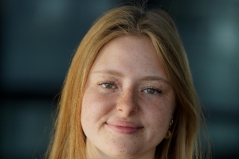Jette Völker

Jette Völker
Dr. Jette Völker is a postdoctoral researcher in work and organizational psychology at the University of Mannheim (Germany), from where she also received her PhD in 2023. Her research interests include sleep and recovery from work, health and well-being at work, and interpersonal relationships at work.
Joop van der Pligt

Joop van der Pligt
Joop van der Pligt is a full professor of Social Psychology. His research focuses on risk perception and the acceptability of risks. Both health-related risks, as well as large scale societal risks recieved considerable attention in his research. Together with Frenk van Harreveld he studied causes and consequences of attitudinal ambivalence. His research also addresses risk communication and its impact on both the acceptability of risk and behavioral change.
Nina Wieking

Nina Wieking
Nina Wieking studied political science and law at the Ludwig-Maximilians-Universität (LMU) in Munich, before being accepted for a master's program in journalism at the LMU. During this time, she researched the topic of "manifestation".
Sarah Vahed

Sarah Vahed
Sarah Vahed has an interdisciplinary background, having studied Psychology, Cognitive Neuroscience, and Law. She is currently pursuing a PhD in Decision Neuroscience at the Donders Institute for Brain, Cognition and Behaviour, the Netherlands. Her research examines how people form judgements and make decisions related to pressing societal and moral issues, such as economic inequality, social injustice, and online harm.
Lieke Braadbaart

Lieke Braadbaart
Dr. Lieke Braadbaart obtained her PhD in Cognitive Neuroscience at the University of Aberdeen, Scotland, investigating the neural correlates of complex manual and facial imitation using fMRI, and how these correlates might differ in young people with autism. Previous to this she had finished a BA in Liberal Arts & Sciences at Maastricht University, focusing on Social Science, after which she completed an MSc in Social Cognitive Neuroscience at the University of Aberdeen, whereby her research on the imitation mechanisms at work during simultaneous EEG-fMRI resulted in her first two first-author publications.
Julia Rohrer

Julia Rohrer
Julia is a PhD student at the International Max Planck Research School on the Life Course in Berlin, investigating the determinants of well-being across the life course. She received her Master's degree in Psychology from the University of Leipzig in 2016. She is currently an associate editor for In-Mind and manages the research participation section. You can follow her on twitter @dingding_peng.
Joe Smith

Joe Smith
Joe was a journalist before reading Daniel Kahneman and Jonathan Haidt made him drop what he was doing and go back to school. He's now a researcher affiliated to the Wellcome Centre for Cultures of Health at the University of Exeter in the UK. Coming to psychology from philosophy, Joe is fascinated by how discoveries in cognitive science are changing our perception of big philosophical questions. For example, what neuroscience implies about personal identity, what evolution tells us about morality, and what ramifications cognitive biases have for the discipline of philosophy itself.
Marc Cubrich

Marc Cubrich
Marc Cubrich, M.A. is a current Doctoral student studying Industrial/Organizational Psychology at the University of Akron. His research interests include employee feedback seeking, cultural values, and issues of diversity, equity, and inclusion in the workplace.
Samuel Sturaro

Samuel Sturaro
Samuel Sturaro was an ERASMUS+ intern at the University of Surrey. He has recently been awarded a MSc in Community Psychology, Wellness Promotion and Social Change (University of Padova). His research interests are reclaiming and sexual prejudice.
